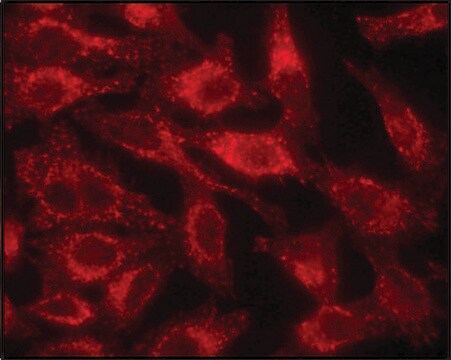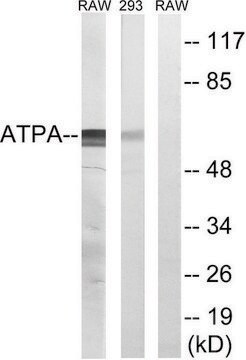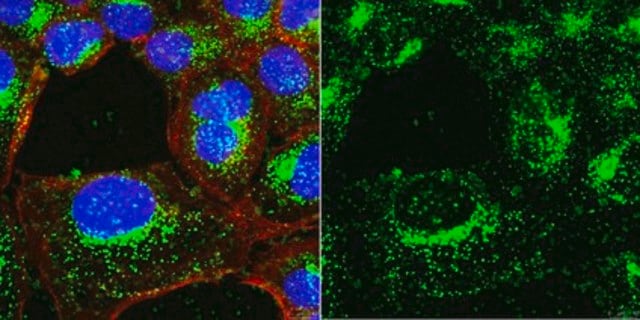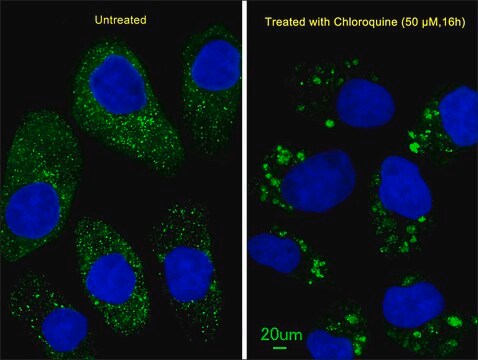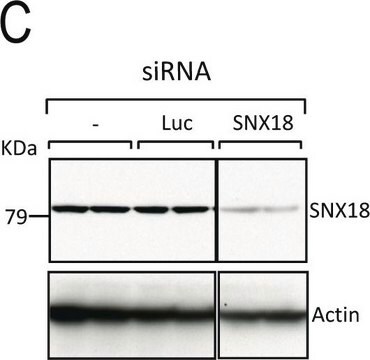L0668
Anti-LAMP2 antibody produced in rabbit
affinity isolated antibody, buffered aqueous solution
Synonym(s):
Anti-CD107B, Anti-LGP110, Anti-Lysosomal Membrane Glycoprotein-type B (LGP-B), Anti-Lysosome-Associated Membrane Protein 2
About This Item
Recommended Products
biological source
rabbit
Quality Level
conjugate
unconjugated
antibody form
affinity isolated antibody
antibody product type
primary antibodies
clone
polyclonal
form
buffered aqueous solution
mol wt
antigen ~110 kDa
species reactivity
human (predicted), mouse, rat
technique(s)
indirect immunofluorescence: 10-20 μg/mL using rat NRK and mouse NIH3T3 cells
western blot (chemiluminescent): 2.5-5 μg using whole extract of rat NRK cells
UniProt accession no.
shipped in
dry ice
storage temp.
−20°C
target post-translational modification
unmodified
Gene Information
human ... LAMP2(3920)
mouse ... Lamp2(16784)
rat ... Lamp2(24944)
General description
Immunogen
Application
Western Blotting (1 paper)
Biochem/physiol Actions
Target description
Physical form
Disclaimer
Not finding the right product?
Try our Product Selector Tool.
related product
Storage Class Code
10 - Combustible liquids
WGK
WGK 3
Flash Point(F)
Not applicable
Flash Point(C)
Not applicable
Personal Protective Equipment
Choose from one of the most recent versions:
Certificates of Analysis (COA)
Don't see the Right Version?
If you require a particular version, you can look up a specific certificate by the Lot or Batch number.
Already Own This Product?
Find documentation for the products that you have recently purchased in the Document Library.
Customers Also Viewed
Our team of scientists has experience in all areas of research including Life Science, Material Science, Chemical Synthesis, Chromatography, Analytical and many others.
Contact Technical Service
